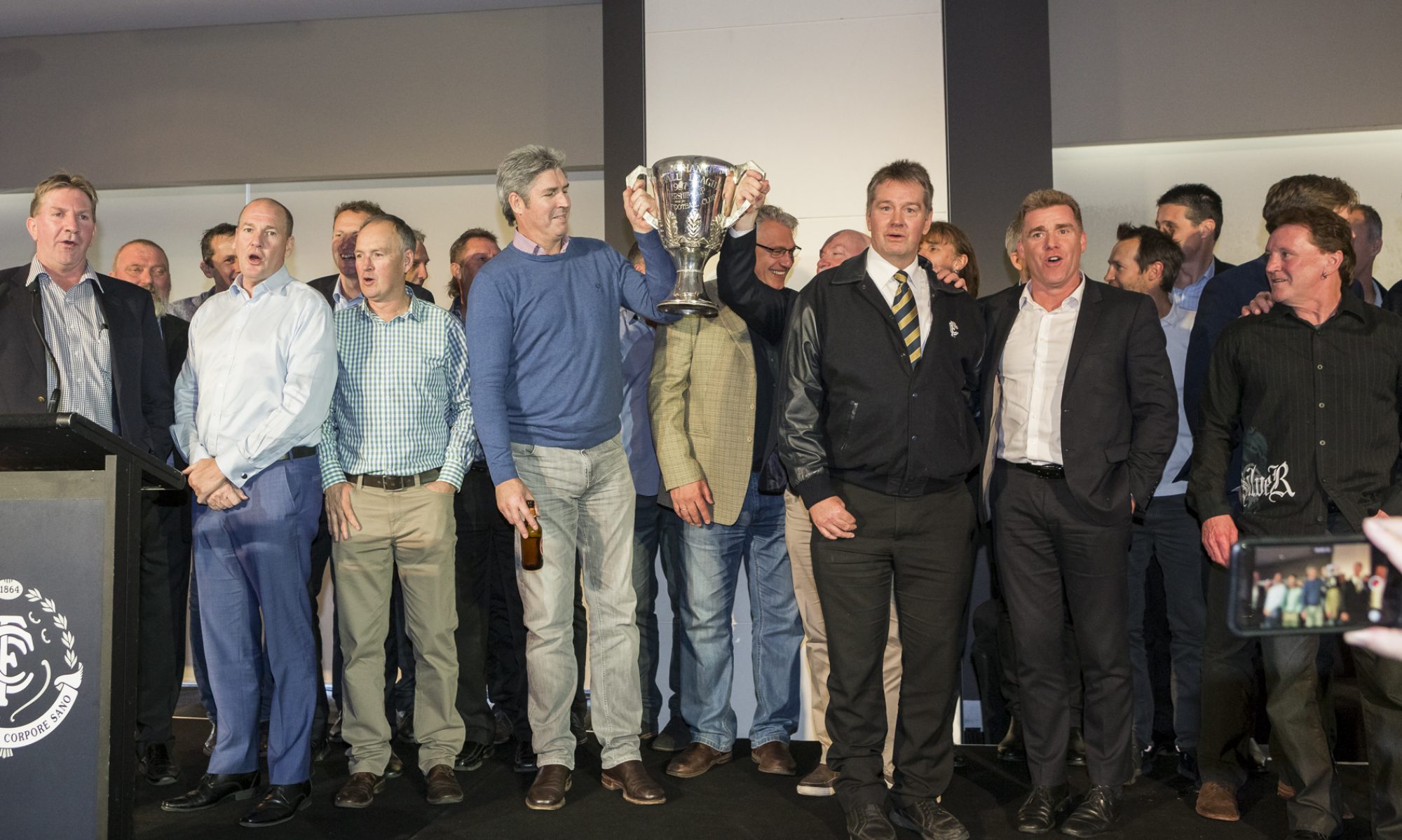
I had been (and still am) intrigued by his comments on star systems, and welcomed the opportunity to discuss the subject with him. Personal experiences of star systems had shaped my understanding of football. As a youngster, I passionately barracked for South Melbourne. I recall crying unbearably when South would lose – and I cried a lot.
Salvation was an extreme devotion to the Swans’ lone and exceptional star, triple Brownlow medallist Bobby Skilton. In my book, he was best on ground every time he played and never made a clanger. No doubt many who have followed teams consistently finishing at the bottom of the ladder feel this binding scenario of regular disappointment and adulation. Perhaps the most recent example is Richmond fans and the special emotions they attributed to Matthew Richardson.
Ultimately, this is one spectrum of a star system, a situation where the ranks of the stars available to a team are spread too thinly and the backup troops struggle to fill the gap. Alternatively, Blight’s experiences are at the other end of the spectrum. Blessed with super talent, his association is with star-studded teams during his playing era and coaching involvements at Geelong and Adelaide.
My conversation with him started with me mentioning the stark contrast I found between barracking for South Melbourne and then, as a recruit, walking into Carlton and confronting a locker room of genuine stars. There was awe but, importantly, it was immediately drilled into me the ‘team’ was the star attraction and everyone involved was required to contribute their respective talents.
Blight acknowledged similar sentiments, but went further to explain his particular issues with star systems. “At Geelong, we played in three losing Grand Finals. These were good teams but, like any team, it was critical to win or at least stay on even terms in the midfield,” he said. “I felt we lost those Grand Finals mainly because our midfield was beaten on the day and this exposed our defence, which was not blessed with super talent. “We had the stars in the midfield,” he said, referring to players the calibre of Brownlow medallist Paul Couch, Mark Bairstow and Garry ‘Buddha’ Hocking, “but there was not much I could do about it. We had a lot of players in the team who had developed into set roles and I couldn’t change things around that much. “I’m of the view, if a star is struggling on the day, get him to play a different role and at least take out someone important from the opposition.”
At Adelaide, he immediately took measures to make sure the same circumstances did not repeat. Consequently, a crop of midfield stars, including Mark Ricciuto, Mark Bickley, Andrew McLeod, Simon Goodwin and Darren Jarman, spent various times rotating in different roles, either forward or back. “Ben Hart was marvellous in defence,” he said, “because he was just as brilliant attending small and tall players. As a defender, Nigel Smart could easily be switched into attack.” In two winning Grand Finals, Blight’s tactical moves are legendary, including the unexpected and successful match-up of McLeod playing in the centre on Saint Robert Harvey, ruckman David Pittman at centre half-back on Stewart Loewe, Ricciuto switching to half-back against North Melbourne and Jarman bobbing up at full-forward for a combined 11 goals in the two wins.
Based on this reasoning – and casting an eye to the present – Blight is convinced that, of the controversial trade of Brendan Fevola from Carlton to the Brisbane Lions and Daniel Bradshaw from the Lions to the Sydney Swans, it is the Swans who have benefited most. “Both are outstanding forwards who have kicked a similar number of goals over distinguished careers,” he said. “But Bradshaw is the far better proposition. He is adaptable. He can play defence as well as attack. It’s best if the star fits within the system, rather than the star becoming the system.”
Ted Hopkins is a Carlton premiership player and founder of Champion Data. His current project is TedSport, a high performance data analysis and consulting service.
This column was first published in the AFL Record. Copyright AFL 2010.

